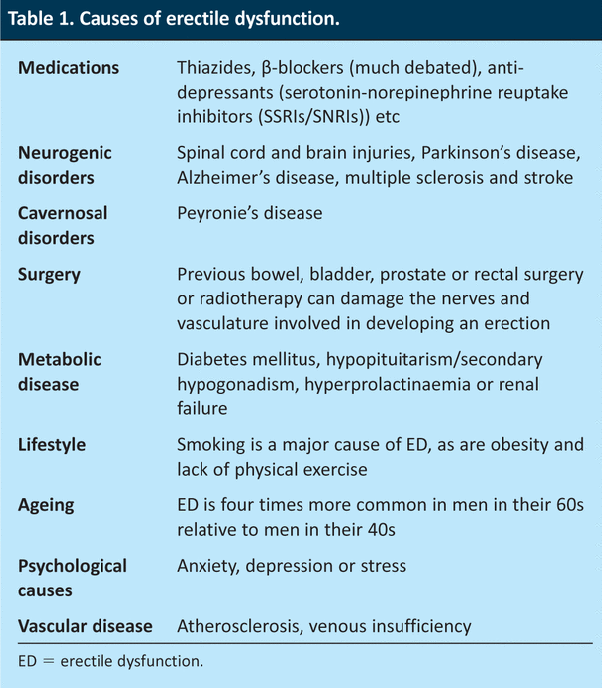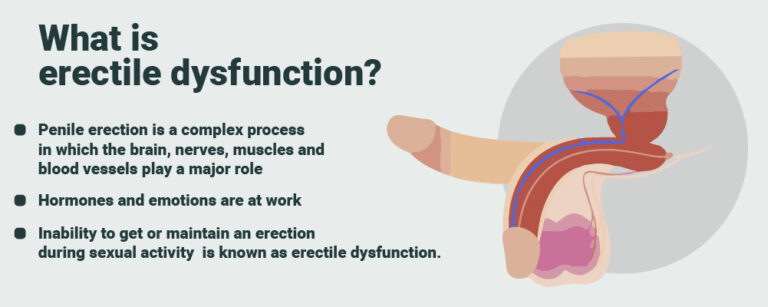The Role of Nutrition in Combating Erectile Dysfunction

Understanding Erectile Dysfunction: Causes and Symptoms
Erectile dysfunction (ED) is a common condition that affects many men worldwide. It is defined as the inability to achieve or maintain an erection firm enough for sexual intercourse. While occasional difficulties with erections are not uncommon, persistent problems may be indicative of an underlying issue.
There are several potential causes of erectile dysfunction, both physical and psychological. Physical causes may include conditions such as diabetes, high blood pressure, heart disease, obesity, and certain medications. Psychological factors such as stress, anxiety, depression, and relationship problems can also contribute to erectile dysfunction.
It is important to note that ED can be an early warning sign of an underlying health problem, such as cardiovascular disease. Research suggests that there is a strong link between ED and heart disease, with shared risk factors and underlying mechanisms. Therefore, seeking medical attention for erectile dysfunction is crucial, as it may help identify and address any potential underlying health issues.

The Link Between Nutrition and Erectile Dysfunction
Erectile dysfunction (ED) is a common condition that affects millions of men worldwide. While there are various factors that contribute to ED, including age, stress, and certain medical conditions, research has shown that nutrition plays a crucial role in maintaining sexual health. By understanding the link between nutrition and erectile dysfunction, individuals can make informed dietary choices to support their sexual wellness.
One significant aspect of nutrition that impacts erectile function is the consumption of essential nutrients. Several key nutrients have been found to promote sexual health and address the underlying causes of ED. For instance, a study published in the International Journal of Impotence Research found that inadequate intake of vitamins C and E could increase the risk of developing erectile dysfunction. These vitamins, known for their antioxidant properties, help protect the blood vessels and improve blood flow to the penis. Additionally, a deficiency in zinc, a mineral essential for testosterone production, has been associated with erectile dysfunction. By including foods rich in these essential nutrients in their diet, individuals may enhance their erectile function and overall sexual wellbeing.
Essential Nutrients for Maintaining Sexual Health
Maintaining sexual health is important for overall well-being, and a balanced diet plays a crucial role in achieving and sustaining good sexual health. There are several essential nutrients that can support sexual function and contribute to a satisfying and pleasurable sexual experience.
First and foremost, adequate intake of vitamins and minerals is essential for sexual health. For example, vitamin C is a powerful antioxidant that can enhance blood flow to the sexual organs, while vitamin E can improve hormonal balance and enhance sexual desire. In addition, minerals such as zinc and selenium are important for healthy sperm production and motility.
Omega-3 fatty acids are another essential nutrient that can benefit sexual health. These healthy fats can improve blood flow, reduce inflammation, and enhance nerve function, all of which are important for a healthy sexual response. Incorporating foods rich in omega-3s, such as fatty fish, flaxseeds, and walnuts, into your diet can be beneficial for maintaining sexual health.
Incorporating these essential nutrients into your diet can have a positive impact on your sexual health. However, it’s important to note that individual needs may vary, and consulting with a healthcare professional or registered dietitian can provide personalized recommendations and guidance. By prioritizing your nutritional needs, you can support your sexual health and overall well-being.
The Impact of a Balanced Diet on Erectile Function

A balanced diet plays a crucial role in maintaining overall health and well-being, including sexual function. When it comes to erectile function, what we put into our bodies can have a significant impact. Research indicates that certain nutrients and food choices can positively affect erectile function, while others may contribute to the development or worsening of erectile dysfunction (ED).
One key way that a balanced diet supports erectile function is by promoting healthy blood flow. The blood vessels in the penis play a vital role in achieving and maintaining an erection. A diet rich in fruits, vegetables, whole grains, and lean proteins can help support cardiovascular health, which in turn improves blood flow throughout the body, including to the penile arteries. In contrast, diets high in saturated fats, trans fats, and processed foods have been linked to an increased risk of developing cardiovascular conditions, which can lead to impaired blood flow and erectile dysfunction.
The Role of Antioxidants in Preventing Erectile Dysfunction
Antioxidants play a vital role in preventing erectile dysfunction (ED). ED is characterized by the inability to achieve or maintain an erection sufficient for sexual activity. It can have various causes, including poor blood flow, nerve damage, hormonal imbalances, and psychological factors. Antioxidants are substances that help neutralize harmful free radicals in the body, which can damage cells and contribute to chronic conditions such as heart disease, diabetes, and ED.
Several studies have shown a clear link between oxidative stress and ED. Oxidative stress occurs when the body’s antioxidant defense system is overwhelmed, leading to an imbalance between free radicals and antioxidants. This imbalance can damage blood vessels and impair nitric oxide production, a key molecule involved in erectile function. By reducing oxidative stress, antioxidants can help protect blood vessels and improve nitric oxide production, thereby supporting healthy erectile function.
Fruits and vegetables, particularly those rich in vitamins C and E and other antioxidants, are beneficial for erectile function. Citrus fruits, berries, leafy greens, and cruciferous vegetables are excellent choices to incorporate into a balanced diet. Additionally, foods such as nuts, seeds, and whole grains are good sources of antioxidants. Consuming a variety of these antioxidant-rich foods can help reduce oxidative stress and support overall sexual health. However, it is important to remember that while antioxidants can be helpful, they are not a standalone solution for ED. It is crucial to address and manage any underlying causes or contributing factors, and always consult with a healthcare professional for guidance and treatment options.
The Importance of Omega-3 Fatty Acids for Sexual Wellness
Omega-3 fatty acids are essential nutrients that play a vital role in maintaining overall health and well-being. These fatty acids are known for their anti-inflammatory properties and have been extensively studied for their various health benefits, including their impact on sexual wellness. Research suggests that omega-3 fatty acids may have a positive effect on sexual function and can contribute to improving erectile dysfunction in men.
One of the key ways omega-3 fatty acids promote sexual wellness is by improving blood flow. Erectile dysfunction often occurs due to impaired blood flow to the penis, making it difficult to achieve and maintain an erection. Omega-3 fatty acids have been shown to enhance blood flow by reducing inflammation and promoting the production of nitric oxide, a molecule that helps relax blood vessels and improve circulation. This increased blood flow to the genitals can enhance sexual performance and contribute to overall sexual satisfaction.
But how can we ensure an adequate intake of omega-3 fatty acids in our diet? While fatty fish like salmon, mackerel, and sardines are excellent sources of these essential nutrients, not everyone consumes enough of these foods on a regular basis. In such cases, omega-3 supplements can be a convenient and effective way to meet the body’s needs. It’s important to choose high-quality supplements that are derived from sustainable sources and have been tested for purity and potency. However, it’s always advisable to consult with a healthcare professional before starting any new supplementation regimen, especially if you have any underlying health conditions or are taking medications that may interact with omega-3 fatty acids.
Vitamin D and its Effect on Erectile Function
Vitamin D, often referred to as the “sunshine vitamin,” plays a crucial role in maintaining overall health. While it is primarily known for its contribution to bone strength, emerging research suggests that vitamin D may also have a positive impact on erectile function. Studies have indicated that low levels of vitamin D may be associated with an increased risk of developing erectile dysfunction (ED).
Research has shown that vitamin D may have several mechanisms that can benefit erectile function. It is believed to enhance the production of nitric oxide, a molecule that relaxes blood vessels and improves blood flow. Since healthy blood flow is essential for a strong and lasting erection, ensuring adequate levels of vitamin D can potentially support sexual health. Additionally, vitamin D has been found to have anti-inflammatory properties, which may help reduce the chronic inflammation that can contribute to ED.
While the evidence regarding vitamin D and erectile function is still evolving, it is clear that getting enough sunlight exposure or obtaining vitamin D from food sources is essential for overall well-being. It is recommended to spend some time outdoors each day to allow your body to naturally produce vitamin D. Additionally, consuming foods rich in vitamin D, such as fatty fish (salmon, mackerel), fortified dairy products, and egg yolks, can help maintain optimal levels. However, it is important to consult with a healthcare professional to determine your individual vitamin D needs and whether supplementation is necessary.
Minerals and Trace Elements for Healthy Blood Flow
Minerals and trace elements play a crucial role in maintaining healthy blood flow, which is essential for overall sexual health. These micronutrients help to optimize various physiological processes that contribute to proper blood circulation throughout the body, including to the pelvic region. Iron, for instance, is vital in the production of red blood cells, which carry oxygen to all organs, including the sexual organs. Additionally, zinc is known to support the production of nitric oxide, a key molecule involved in vasodilation, which helps in relaxing and widening blood vessels, improving blood flow.
Other trace elements, such as selenium and magnesium, also contribute to healthy blood flow. Selenium acts as an antioxidant, reducing the risk of oxidative damage to blood vessels and promoting their flexibility. Magnesium, on the other hand, supports muscle relaxation, including the smooth muscle tissue found in blood vessel walls. Together, these minerals and trace elements work synergistically to maintain optimal blood circulation, providing the necessary nutrients and oxygen to promote sexual wellness.
The Connection Between Erectile Dysfunction and Heart Health
Erectile dysfunction (ED) and heart health are closely interconnected, and understanding this link can be crucial for overall well-being. Research has consistently shown that men with cardiovascular diseases, such as hypertension (high blood pressure), atherosclerosis (narrowing of the arteries), and coronary artery disease (CAD), are more likely to experience ED. In fact, studies indicate that the presence of ED can be an early warning sign of an underlying cardiovascular condition.
The connection between ED and heart health lies in the shared risk factors and underlying mechanisms. Conditions like hypertension and atherosclerosis can impair blood flow throughout the body, including the arteries that supply blood to the penis. Similarly, the risk factors for heart disease, such as smoking, obesity, diabetes, and high cholesterol levels, can also contribute to erectile difficulties. By addressing these risk factors and maintaining a healthy heart, men can potentially improve their erectile function and overall sexual well-being. It is crucial for individuals experiencing ED to have an open conversation with their healthcare provider to identify and manage any underlying cardiovascular issues.
Dietary Approaches to Lowering High Blood Pressure and Improving Erectile Function
Lowering high blood pressure is not only important for your overall cardiovascular health, but it can also play a significant role in improving erectile function. High blood pressure can damage the blood vessels, leading to decreased blood flow throughout the body, including the genital area. This can result in difficulties achieving and maintaining an erection.
Fortunately, making dietary changes can be a powerful strategy for lowering high blood pressure and improving erectile function. The DASH (Dietary Approaches to Stop Hypertension) diet, for example, has been shown to effectively lower blood pressure. This eating plan emphasizes whole grains, fruits, vegetables, lean proteins, and low-fat dairy products while limiting sodium, saturated fats, and added sugars. By following the DASH diet and incorporating other heart-healthy foods, you can not only improve your blood pressure but also enhance your sexual wellness.
The Role of Fiber in Managing Erectile Dysfunction
High-fiber diets have long been associated with a range of health benefits, and recent studies suggest that fiber may also play a role in managing erectile dysfunction (ED). One study published in The American Journal of Clinical Nutrition found that men who consumed higher amounts of dietary fiber were less likely to experience ED than those with lower fiber intake. This correlation could be attributed to the fact that fiber-rich foods, such as fruits, vegetables, whole grains, and legumes, provide essential nutrients and promote healthy blood flow throughout the body, including the penile arteries.
Fiber acts as a natural regulator of blood sugar levels and cholesterol, both of which are known risk factors for developing ED. By maintaining steady blood sugar levels, fiber-rich foods help to prevent insulin resistance, a condition associated with diabetes. Diabetes is a leading cause of erectile dysfunction, as high blood sugar levels can damage blood vessels and nerves, compromising the body’s ability to achieve and maintain an erection. Additionally, a high-fiber diet can help to lower LDL (bad) cholesterol levels, reducing the risk of atherosclerosis and improving blood flow to the penis, vital for a healthy sexual response.
Healthy Eating Habits to Promote Sexual Wellbeing
Good sexual wellbeing requires a holistic approach that includes maintaining a healthy lifestyle, including a nutritious diet. The foods we consume can have a significant impact on our sexual health and performance. By incorporating healthy eating habits into our daily routine, we can promote sexual wellbeing and enhance our overall quality of life.
A well-balanced diet consisting of fruits, vegetables, whole grains, lean proteins, and healthy fats is crucial for supporting sexual health. These foods provide necessary nutrients that support proper blood circulation and hormone production, which are essential for a healthy sexual response. Additionally, a healthy diet helps maintain optimal body weight, reduces the risk of chronic diseases, and improves overall vitality. Furthermore, certain nutrients, such as antioxidants and omega-3 fatty acids, have been specifically linked to improved sexual function and libido. By including these nutrients in our diet, we can support healthy sexual functioning and enhance our intimate relationships.
Foods to Include in Your Diet to Enhance Erectile Function
Maintaining a healthy and balanced diet is essential for overall well-being, and it can also play a significant role in enhancing erectile function. Certain foods are known to improve blood flow, boost testosterone levels, and support sexual health. Let’s explore some of the key foods you can include in your diet to enhance erectile function.
1. Dark Chocolate: Not only is dark chocolate a delicious treat, but it also contains flavonoids that promote blood vessel dilation and improve blood flow. Studies have shown that regular consumption of dark chocolate may have a positive effect on erectile function.
2. Watermelon: This juicy and refreshing fruit contains an amino acid called citrulline, which can help relax blood vessels and improve circulation. Watermelon can be a delicious and natural way to support erectile function.
3. Leafy Greens: Vegetables like spinach, kale, and Swiss chard are packed with nitrates, which can enhance blood flow. Incorporating these leafy greens into your meals can contribute to better erectile function.
4. Salmon: This fatty fish is an excellent source of omega-3 fatty acids, which are known to improve cardiovascular health and promote blood flow. Including salmon in your diet can benefit both your heart and your erectile function.
Remember, while these foods can be beneficial, it’s important to have a well-rounded and varied diet that includes a wide range of nutrients. Consulting with a healthcare professional or a registered dietitian can provide personalized guidance on how to optimize your diet for improved erectile function.
Lifestyle Changes to Support Nutritional Interventions for Erectile Dysfunction
Making lifestyle changes can play a crucial role in supporting nutritional interventions for erectile dysfunction. By adopting healthy habits, individuals can enhance their overall well-being and potentially alleviate symptoms of this condition. When it comes to making positive changes, a balanced diet is of utmost importance.
Consuming a variety of nutrient-rich foods can help provide the body with the necessary vitamins and minerals it needs to maintain sexual health. Incorporating foods such as fruits, vegetables, whole grains, lean proteins, and healthy fats into the diet can promote proper blood circulation and heart health. A study published in The Journal of Sexual Medicine found that a Mediterranean-style diet, rich in fruits, vegetables, legumes, fish, and olive oil, was associated with a lower risk of erectile dysfunction. Additionally, reducing the intake of processed and high-sugar foods can help improve overall cardiovascular health, which is closely linked to erectile function.
By making these dietary changes, individuals may see improvements in their sexual well-being. However, it is important to note that diet alone may not be sufficient to address all cases of erectile dysfunction. It is recommended to consult a healthcare professional to determine the underlying causes and develop a comprehensive treatment plan that incorporates nutrition, exercise, and other appropriate interventions.
Seeking Professional Advice: Integrating Nutrition into Your Treatment Plan
Integrating nutrition into your treatment plan for erectile dysfunction can be a crucial step towards improving your sexual health. Seeking professional advice from a healthcare provider, such as a gynecologist or a nutritionist, can help you design a personalized nutrition plan tailored to your specific needs.
When it comes to addressing erectile dysfunction through nutrition, it’s important to understand that there is no one-size-fits-all approach. Every individual’s body is unique, and their nutritional requirements may vary. A healthcare provider will consider factors such as your overall health, medical history, lifestyle, and personal preferences to devise a plan that suits you best.
Professional guidance can ensure that you are getting the right balance of essential nutrients in your diet. Nutrients such as antioxidants, omega-3 fatty acids, vitamin D, and minerals play a crucial role in maintaining healthy blood flow and promoting erectile function. A healthcare provider can help you identify specific foods rich in these nutrients and incorporate them into your diet effectively.
In addition to providing nutrition advice, a healthcare provider can also offer guidance on other lifestyle factors that may impact your erectile function. They may recommend regular exercise, stress management techniques, and healthy sleeping habits to support your overall well-being.
Remember, seeking professional advice is important to ensure that you are making informed decisions about your treatment plan. Your healthcare provider can provide the necessary expertise and guidance to help you navigate the complexities of integrating nutrition into your quest for improved sexual health.
Can certain medications contribute to erectile dysfunction?
Yes, certain medications such as antidepressants, antihistamines, and blood pressure medications can contribute to erectile dysfunction as a side effect.
Is there a link between obesity and erectile dysfunction?
Yes, obesity has been linked to an increased risk of erectile dysfunction due to factors such as reduced blood flow and hormone imbalances.
Can stress and anxiety affect erectile function?
Yes, stress and anxiety can negatively impact erectile function by causing a release of stress hormones that can interfere with the normal physiological processes involved in achieving and maintaining an erection.
Are there any natural supplements that can help with erectile dysfunction?
Some natural supplements, such as L-arginine, ginseng, and horny goat weed, have been studied for their potential benefits in improving erectile function. However, it is important to consult with a healthcare professional before taking any supplements.
Can smoking and alcohol consumption contribute to erectile dysfunction?
Yes, smoking and excessive alcohol consumption have been linked to erectile dysfunction. Smoking can restrict blood flow, while excessive alcohol intake can affect nerve function and hormone levels.
Is it possible for a healthy diet alone to cure erectile dysfunction?
While a healthy diet plays a crucial role in maintaining overall sexual health, it may not be enough to cure erectile dysfunction on its own. It is important to address any underlying medical conditions and seek appropriate treatment.
Can regular exercise help improve erectile function?
Yes, regular exercise can improve blood flow, reduce stress, and promote overall cardiovascular health, all of which can contribute to improved erectile function.
Can untreated diabetes lead to erectile dysfunction?
Yes, untreated diabetes can lead to erectile dysfunction by causing damage to blood vessels and nerves that are essential for normal erectile function.
Can psychological factors contribute to erectile dysfunction?
Yes, psychological factors such as depression, relationship problems, and performance anxiety can contribute to erectile dysfunction. Counseling or therapy may be beneficial in addressing these underlying issues.
Is it normal for older men to experience erectile dysfunction?
While erectile dysfunction becomes more common with age, it is not considered a normal part of the aging process. It is important for older men to consult with a healthcare professional to determine the underlying cause and appropriate treatment options.







